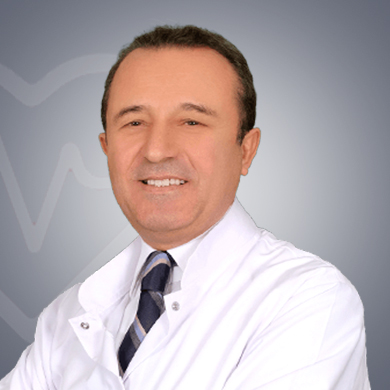
38 Years of experience
Speaks: English
Here is the list of some of the conditions Dr Fuat Demirkiran treats:
Breast cancer surgery is performed to remove the specific area of cancer in the breasts. The surgeon removes cancer and healthy tissues all around it. You usually have to undergo radiotherapy for the breast after this kind of surgery.
Your symptoms depend on the type of cancer you are affected with, what is the stage, the location of cancer, and how far it has spread in the body. Cancer may cause any type of symptoms or signs. A sign can be seen by others, such as a fever, vomiting, and breathing. Symptoms can be perceived only by the person is suffering from the condition. Around 200 types of cancer are known till date and all these can cause different symptoms. Some of the signs and symptoms of different types of cancer are as follows:
The operating hours of Dr Fuat Demirkiran is 11 am to 6 pm (Monday to Saturday), The doctor does not see patients on Sunday.
Dr Fuat Demirkiran performs a wide variety of procedures for cancer treatment. Some of these are
The doctor has rich experience in performing complex cases with accuracy. The surgeon has performed a large number of procedures with a high success rate and adheres to medical protocols to ensure patient safety and speedy recovery. The specialist is proficient in using the latest techniques to perform the procedures and ensures that the patient has a speedy recovery. There are two types of cancer surgery - minimally invasive surgery and open surgery. In open surgery, a surgical oncologist makes a large incision, to remove the tumor and some of the adjacent healthy tissues. Minimally invasive surgery involves laser surgery, cryosurgery, robotic surgery, laparoscopy, cryosurgery.

Share Your Experience about Dr. Fuat Demirkiran

The surgical oncologist is often the first among cancer specialists to see cancer patients. The primary doctor most commonly does a diagnosis, and in cases where this requires biopsy or surgery, the surgical oncologist is called. Surgical oncologists are doctors with experience in cancer surgery. Surgical oncologists choose to perform surgeries to find out the locations where cancer has spread. While treating cancer, a surgical oncologist might remove cancerous tumors and surrounding healthy tissues, and nearby lymph nodes. The surgical procedures used will vary depending on the aim of the surgery. Surgical oncologists might do minimally invasive procedures or open surgeries.
A surgical oncologist can suggest or perform a variety of diagnostic tests including:
A biopsy is a procedure in which a piece of tissue from your body is removed to analyze it in a laboratory. It is an effective way to diagnose cancer.
You should see a surgical oncologist in case your primary care doctor refers you to one. The doctor may also tell you to visit a surgical oncologist for the diagnosis of cancer. Some specialized general surgeons can also perform surgery on various types of cancer. In the below-listed situations, you must seek assistance from a surgical oncologist: